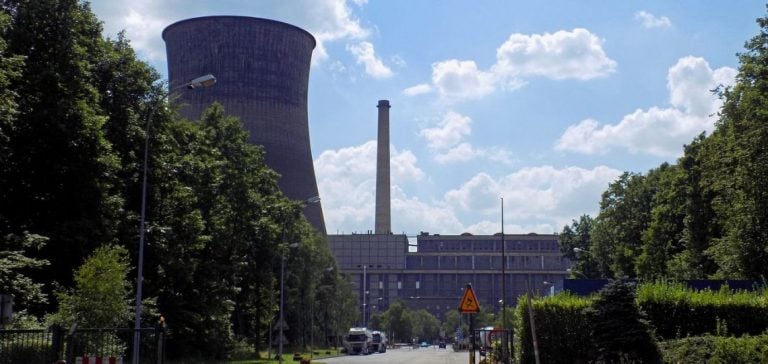The Saint-Avold power plant in the Moselle region of France has officially abandoned its plans to convert to biomass power and is now switching to gas-fired generation.
This change, announced by GazelEnergie, is motivated by a desire to optimize costs and respond more flexibly to power grid requirements.
While decarbonizing the electricity sector remains a key objective for France, GazelEnergie’s decision illustrates the challenges facing aging infrastructures in their energy transition.
The cost of converting to gas is estimated at 110 million euros, a slight increase on the biomass conversion, initially estimated at 100 million euros.
However, building a new power plant would cost around 500 million euros, making this option economically more viable in the short term.
The proximity of gas infrastructures, already in place, also facilitates this transition.
Network flexibility and reduced emissions
This conversion to gas will enable the plant to continue to meet periods of high demand, particularly during winter peaks.
The plant will be used during the so-called hyperpeak periods, i.e. between 300 and 700 hours a year, when the power grid is under tension.
Unlike coal, gas offers greater flexibility, enabling a faster response to grid needs.
Although gas is not carbon-neutral, GazelEnergie plans to integrate a share of green gas, thereby helping to reduce CO2 emissions.
However, this intermediate solution does not guarantee that France’s carbon-neutral targets for 2050 will be met, but it does reduce dependence on coal, a major source of emissions.
The challenges of energy conversion
The switch to gas at Saint-Avold is part of a wider context of energy transition in France.
President Emmanuel Macron had announced in 2022 that France’s last two coal-fired power plants, at Cordemais and Saint-Avold, would be fully converted to biomass by 2027.
However, EDF recently abandoned this project for the Cordemais plant, leaving the future of these infrastructures uncertain.
The Saint-Avold unions and employees, although reassured by the announcement of the conversion to gas, fear that this solution is only temporary.
They are now waiting for clear answers from the government, particularly as regards the impact on employment and the long-term economic viability of this conversion.
Economic and social impact
Beyond the technical issues at stake, the conversion of the Saint-Avold power plant to gas raises questions about the future of employment in the region.
Energy transition, while aimed at modernizing infrastructures and reducing emissions, often entails upheaval for workers at the sites concerned.
The gas conversion project is seen as a more favorable alternative for local employment than the outright closure of the plant, as might have been the case with other scenarios considered.
Discussions between unions, employees and the government are underway to determine the details of this transition.
GazelEnergie has announced that investment in conversion will guarantee the maintenance of current jobs, but the unions remain cautious, awaiting more concrete long-term commitments.
Outlook for the future
The Saint-Avold power plant will not be the only one to undergo changes.
As France progresses towards its decarbonization objectives, many other energy infrastructures will need to evolve to meet new environmental and economic standards.
While the transition to gas offers a viable intermediate solution, it can only be a temporary step in the transition to more sustainable energy sources.
GazelEnergie’s announcement marks an important step in the transformation of the French energy landscape.
Nevertheless, the switch to gas raises questions about the country’s long-term strategy for meeting its climate targets, particularly in a context where renewable technologies are still struggling to take over reliably and continuously.






















